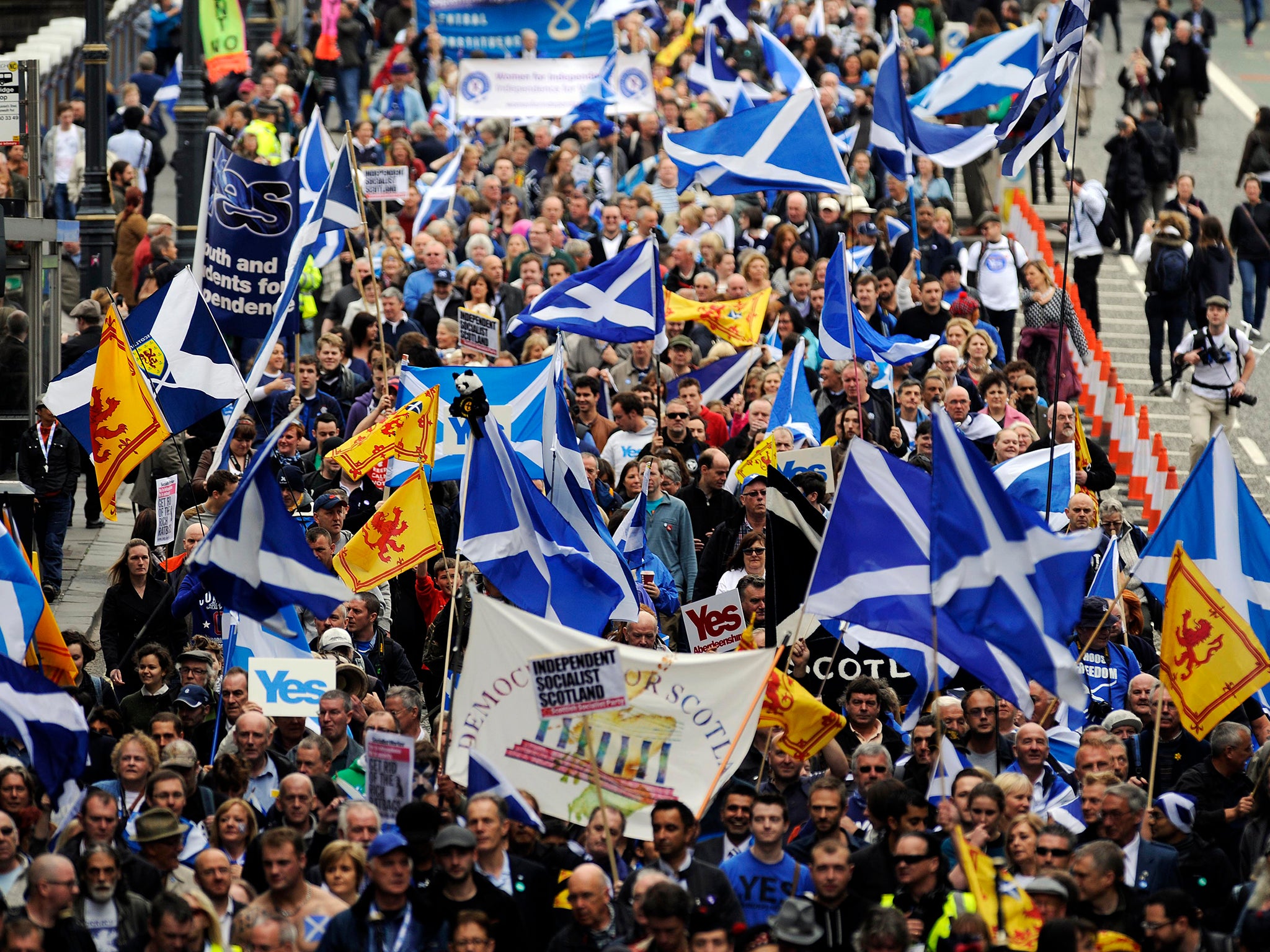Welfare reforms and austerity increase likelihood of second Scottish independence vote, says leading historian
Professor Sir Tom Devine said a second referendum would be unlikely before 2020 unless the UK voted to leave the EU in 2017

The Conservative Government’s welfare reforms and continued commitment to austerity is increasing the likelihood of a second referendum on Scottish independence, the country’s leading historian has said.
In an essay for The Independent on the future of the Union, Professor Sir Tom Devine said independence was becoming an increasingly “realistic and attractive” option for many Scots, many of whom believe that the welfare changes driven through by Iain Duncan Smith are harming “the poorest and most vulnerable” people.
The historian, widely considered to be Scotland’s foremost academic and intellectual, said a second referendum would be unlikely to happen before 2020 unless the UK voted to leave the European Union in 2017. But he added that the policies being pursued by David Cameron’s administration had “not helped” efforts to maintain the Union.
“The current Conservative government in London is committed to a programme of continued austerity and, in the view of some, has embarked on a systematic programme of shrinking the UK state,” Sir Tom wrote.
“Iain Duncan Smith’s welfare reforms are already causing much pain for the poorest and most vulnerable in society. These policies which will be visited on Scotland over the next four years or so will help to consolidate independence as a realistic and attractive option for many Scots.”
He added that some of Mr Cameron’s decisions were considered by people in Scotland to be “not simply maladroit but brazenly offensive and inflammatory”, highlighting the Prime Ministers recent controversial appointments to the House of Lords, which he said had “triggered a palpable sense of outrage” north of the border.
Sir Tom, who came out in favour of independence shortly before last year’s referendum, said Nicola Sturgeon and the SNP were aware that a second vote would be a “zero-sum game” and would be wary of calling one too early.
“A second consecutive defeat would surely sideline the cause of independence for a generation or more and 2015 may then come to be seen by future historians as the high water mark of nationalist political achievement,” he wrote.
The possibility of a second referendum is continuing to be discussed in Scotland, despite Ms Sturgeon’s frequently stated view that a “material change” of circumstances would have to take place before another vote is called. Blair Jenkins, the former head of the Yes campaign, said he thought another referendum was “highly likely” and would probably come in 2021.
“I avoid the word inevitable, which I know some people have used about a second referendum,” he told the Herald. “But I do think it’s highly likely there will be a second referendum and I think it is highly likely Yes will win.”
Support for independence has risen since last year’s referendum, with two recent polls showing that 53 per cent of Scots are now in favour of leaving the UK.
However, Sir Tom suggested that only an “entrenched” opinion poll majority in favour of independence of around 55 per cent or more over a period of months would be enough to persuade the SNP that it was worth holding another vote.
Subscribe to Independent Premium to bookmark this article
Want to bookmark your favourite articles and stories to read or reference later? Start your Independent Premium subscription today.

Join our commenting forum
Join thought-provoking conversations, follow other Independent readers and see their replies